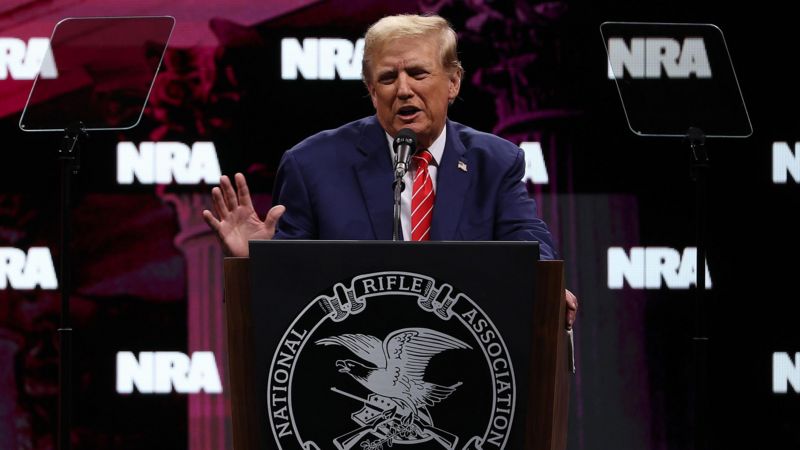
In an unprecedented move, a New York jury found former President Donald Trump guilty of 34 counts of falsifying business records, related to a $130,000 hush money payment to adult film actress Stormy Daniels. This landmark decision marks the first time a former U.S. president has been criminally convicted, adding a complex layer to Trump’s political and legal saga as he remains the Republican Party’s presumptive nominee for the 2024 presidential election.
The Core of the Case: Falsifying Business Records
The heart of the conviction lies in Trump’s alleged falsification of business records to obscure the payment made to Stormy Daniels during the 2016 presidential campaign. Normally, falsifying business records is a misdemeanor under New York law. However, the charge escalates to a Class E felony if the falsification is intended to conceal another crime. The prosecution argued, and the jury agreed, that Trump’s actions were aimed at interfering in the election by illegal means.
Trump’s legal team, led by Todd Blanche, plans to appeal the conviction, with one of their central arguments focusing on the statute of limitations. According to New York law, the statute of limitations for a Class E felony is five years. However, several factors, including pandemic-related extensions and Trump’s time spent outside New York during his presidency, complicate this timeline.
The Statute of Limitations: A Complex Argument
The statute of limitations is a legal doctrine that requires certain types of legal actions to be initiated within a specified period. For Trump’s case, the five-year limitation for a Class E felony appears to have expired, as the earliest charge dates back to February 14, 2017, and the indictment was filed on March 30, 2023 more than six years later.
However, former New York Governor Andrew Cuomo’s pandemic-era extension of legal deadlines added one year and 47 days to the statute of limitations, bringing the case within the acceptable timeframe. Additionally, prosecutors argue that Trump’s prolonged absence from New York during his presidency further extended the deadline, allowing for the charges to be filed within the legally permissible period.
Legal Maneuvering and Appeals
Appeals based on the statute of limitations often hinge on when the clock started ticking. In Trump’s case, this is further complicated by the elevation of misdemeanors to felonies, relying on underlying, uncharged crimes to justify the felony status. Legal experts like Stanley Brand and Greg Germain suggest that these complexities make the case difficult to untangle, likening it to “stacked Russian dolls” of interdependent charges.
Trump’s defense may argue that combining outdated misdemeanors to create a current felony charge violates the statute of limitations. This argument, if successful, could potentially overturn the conviction, though the pandemic extensions and Trump’s absence from New York present significant hurdles.
Broader Implications: The Intersection of Law and Politics
The conviction adds a significant twist to Trump’s political narrative. As the first former president to be criminally tried and convicted, Trump’s legal battles are far from over. With three more criminal cases pending and numerous civil suits, the legal challenges could affect his 2024 presidential campaign.
Prosecutors in these cases are employing various strategies to hold Trump accountable, from campaign finance violations to conspiracy charges related to the 2020 election. The outcomes of these trials will likely influence both public opinion and Trump’s political strategy, particularly if he leverages these legal battles to rally his base.
The Political Angle
Trump has consistently framed the legal actions against him as politically motivated, a narrative that resonates with many of his supporters. After the conviction, Trump decried the trial as a “disgrace” and “rigged,” underscoring his belief that he is being unfairly targeted.
Legal experts suggest that despite the severity of the charges, Trump is unlikely to face prison time, with fines and probation being more probable outcomes. This perception, coupled with his ongoing appeals, could bolster his narrative of victimization and persecution, potentially galvanizing his supporters ahead of the 2024 election.
Conclusion: Navigating Uncharted Territory
Trump’s conviction for falsifying business records in relation to a hush money payment is unprecedented in American history. The intricate legal arguments surrounding the statute of limitations and the elevation of misdemeanors to felonies add layers of complexity to the case. As Trump prepares to appeal, the legal, political, and public ramifications will continue to unfold.
In a nation deeply divided, Trump’s legal troubles could either undermine his bid for the presidency or fortify his position as a political outsider fighting against a perceived establishment relojes rolex imitacion conspiracy. As the 2024 election approaches, the interplay between Trump’s legal battles and his political ambitions will undoubtedly shape the future of American politics.
In the ever-evolving saga of Donald Trump, the lines between law and politics blur, creating a narrative that captivates, polarizes, and challenges the very fabric of American democracy. The final chapters of this story remain unwritten, with implications that will reverberate well beyond the courtroom and the ballot box.
AUTHORED BY - ANSH VERMA
SYMBIOSIS LAW SCHOOL
N-55, Sri Niwas Puri, New Delhi 110065
ireneslegal9@gmail.com
+91 995 378 5058
Copyright © ireneslegal.com. All Rights Reserved.
Designed by Questend India Pvt Ltd